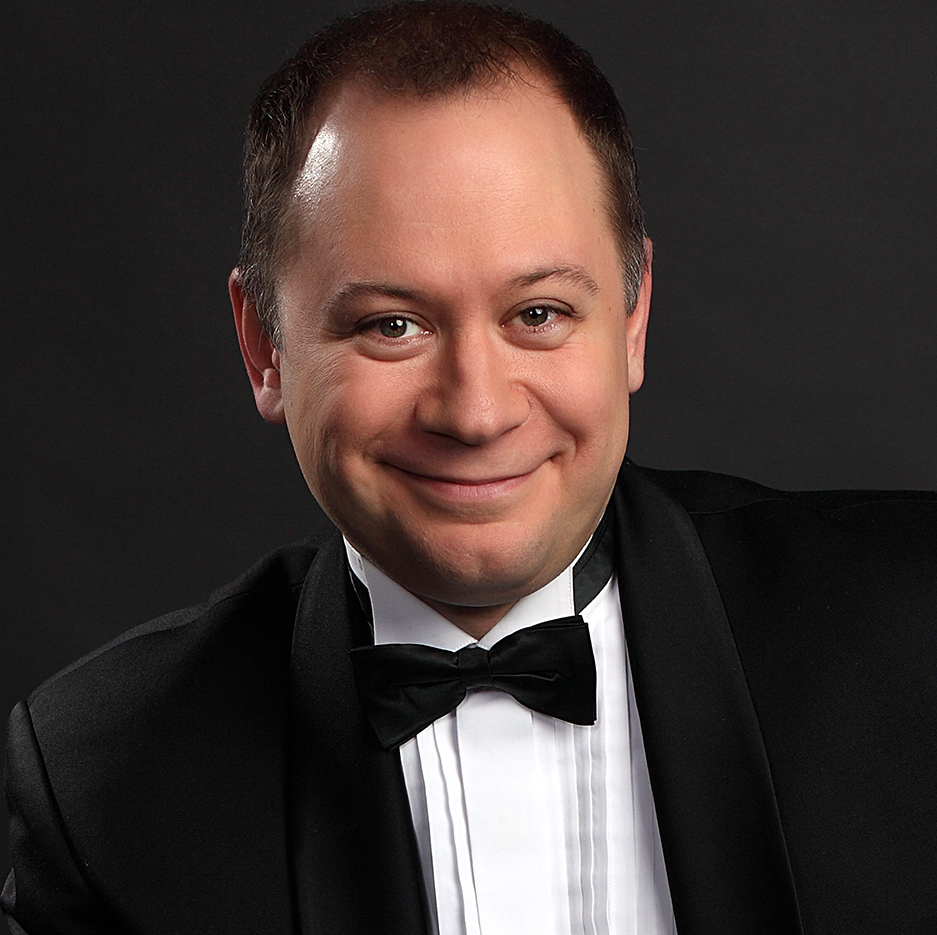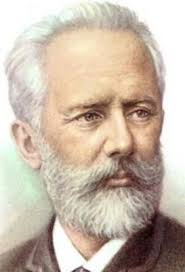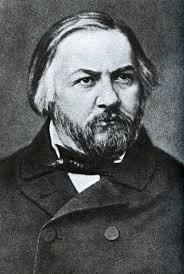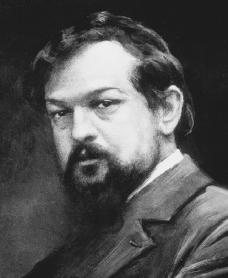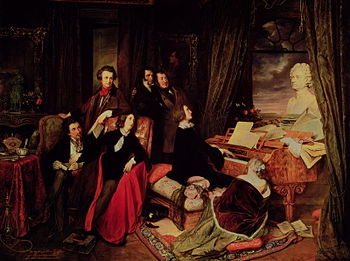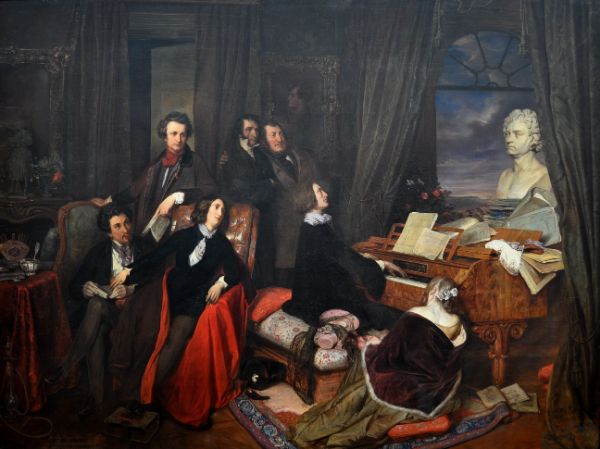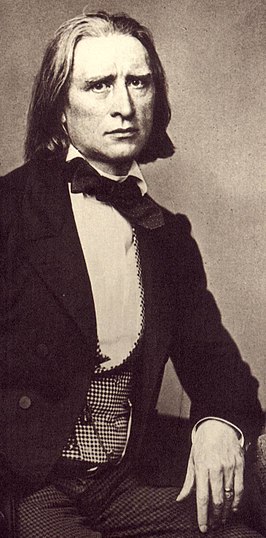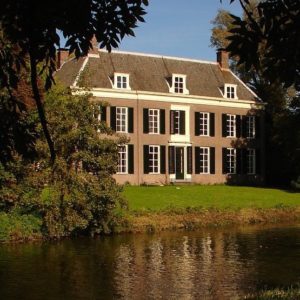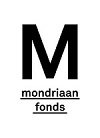Slava Poprugin – piano & Jutta Maria Böhnert – sopraan: ‘Voyage Poëtique’
31 januari 2020 | 15.30 uur
| Buitenplaats Oud-Amelisweerd, Bunnik
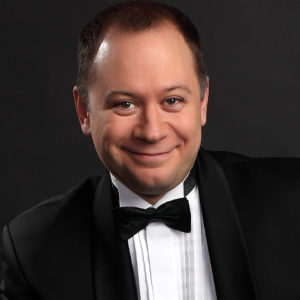
Piano-zang duo van wereldklasse: pianist Slava Poprugin en sopraan Jutta Maria Böhnert nemen ons mee op een poëtische reis met Debussy, Liszt, Glinka en Tsjaikovsky.
Programma
C. Debussy (1862-1918):
Proses Lyriques (1893)
• Le Rêve
• De Grève
• Les Fleurs
• Les Soirs
F. Liszt (1811-1886)
Sonetto 104 del Petrarca (1864)
M. Glinka ( 1804-1857)
Two French songs
1. Le Baiser (1854)
2. Pour un moment (1827)
——— pauze ———
P. Tsajkovsky (1840-1893)
Six French songs, op.65 (1888)
1. Sérénade. Où vas-tu, souffle d’aurore
2. Déception
3. Sérénade. J’aime dans le rayon
4. Qu’importe que l’hiver
5. Les larmes
6. Rondel
M. Glinka
Variations on a Theme from Bellini’s Opera ‘I Capuletti ed i Montecchi’ (1835)
F. Liszt
Four French Songs (1849)
1. Il m’aimait tant
2. Comment disaient-ils
3. S’il est un charmant gazon
4. Oh! quand je dors
Instrument:
Tischner fortepiano vleugel, St Petersburg ca. 1828
Johann August Tischner (1774-1852) was een van oorsprong Duitse fortepiano bouwer, die in St Petersburg groete roem verwierf. Zijn instrumenten vonden hun weg naar de St Petersburgse elite en hof van de Romanovs. Tsaar Nicolaas I ontving er een bij zijn kroning en de beroemde componist Mikhail Glinka (vader van de Russische Romantische school) was verrukt van zijn Tischner.
Over ‘Voyage Poëtique:
Jutta Maria Böhnert schrijft als toelichting op het programma:
Voyage poëtique First part Mikhail Glinka is called the “father of the Russian school and opera”.Glinka’s romances and songs reflect his very personal feelings about the events of his time and life. -Pour un moment
- Le baiser
When Claude Debussy was still very young and not yet the grand master of a completely new, distinctly French music, he visited regularly the salon of the poet Stéphane Mallarmé. Debussy was the only musician in this illustrious circle and was soon inspired by his idol’s language to write his own poetry: in 1892 he wrote four poems in prose, the Proses lyriques, which he also set to music.
De rêve is dark and mysterious like Mallarmé, even the Knights of the Holy Grail scurry through the night forest. De fleurs is reminiscent of Baudelaire. And both times it is Wagner who resonates in the music. De grêve is the lovely vision of the young girls, who are surprised by the downpour on the beach promenade; a fragrant and gallant piece.De soir, an ironically colored Sunday idyll with an unreal ending. The music of the Proses Lyriques is of a delicacy, of a dreamlike transparency, of a floating conciseness of the declamation. – De rêve- De grêve- De fleurs- De soir
Second part
1888 during a concert tour where he presented his works outside of his home country, Peter Tchaikovsky met in Berlin the mezzo-soprano Désirée Artôt, with whom he had been engaged twenty years earlier and whom he had wanted to marry.
Especially for her, he wrote six French songs, which were published in Russian translation as Opus 65.
- Sérénade. Où vas-tu, souffle d’aurore
- Déception
- Sérénade. J’aime dans le rayon
- Qu’importe que l’hiver
- Les larmes
- Rondel
Franz Liszt composed over eighty songs in German, French, Italian, Hungarian, Russianand English. Although most of his songs are set to German poems, the songs in French are among the most significant works, especially those set to poems by Victor Hugo.Liszt-Hugo songs were composed between 1842 and 1844. Throughout his life Liszt read French Romantic literature and was strongly inspired by it. He revised these songs later and created a more transparent and more French version. – Il m’aimait tant (E.von Girardin) 1843- Comment disaient-ils (V. Hugo) 1860- S’il est un charmant gazon (V. Hugo) 1860- Oh, quand je dors (V. Hugo) 1860
Jutta Maria Böhnert – sopraan
Born in Baden Baden, Jutta Maria Böhnert studied singing with Professor Sylvia Geszty at the Stuttgart Music School.
Her first opera engagement was at the the National Opera Nüremberg. During this period, she has been invited to Berlin’s Deutsche Oper, the Opera House in Hannover, the Munich State Theater am Gärtnerplatz and the Staastoper Berlin.
Her career continues as a member of the soloist ensemble of the Kassel State Theater. She performed in various concerts and opera productions in Europe, France, Spain, Italy, Switzerland, and more widely in Australia, China and Japan.
Her repertoire includes the roles of Fiordilidgi, Cosi fan tutte, Micaela, Carmen, Blanche, Dialogues des Carmélites.
The magazine Opernwelt nominated her “Young Artist” for the role of Verdi’s Gilda, staged by Vera Nemirova.
Her interpretation of Sophie in Der Rosenkavalier, is one of her great successes at the Cologne Opera alongside Dame Kiri Te Kanawa, further performed also at the State Opera in Wiesbaden and at the Stuttgart Opera under the direction of Manfred Honeck on a staging by Stefan Herheim.
With her warm timbre she interprets with great acclaim the lyrical roles of Händel and Mozart, roles such as Fiordilidgi and Konstanze at the Castle Theater of Potsdam and at the Cologne Opera House under the direction of Konrad Junghänel. Under his conduction, she also shines in the female lead role of Händel’s Teseo at the Stuttgart Opera House and in Poro at the Händelfestspiele Göttingen and Xerxes at the Komische Oper Berlin.
At the Händelfestspiele Halle she sang the role of Ginevra in Ariodante under the direction of Frederico Maria Sardelli.
In Dresden she interprets the main female role in Teofane by Antonio Lotti conducted by Helmut Branny.
At the Lucerne Opera House in Switzerland she sang with great success under the guidance of the British conductor Howard Arman the title role of Alcina , as well as the role of Belinda in Dido and Aeneas. With the same collaboration, she performed at the Händelfestspiele Halle the soprano part in The Feast of Alexander by Händel.
She frequently performs a serie of concerts with Baroque repertoire together with the Windsbacher Knabenchor, the Kreuzchor of Dresden and the Thomanerchor of Leipzig, works of Bach-Weihnachtsoratorium, Matthäus- Johannes- Passion, recorded by Sony and Rondeau.
With Peter Kopp and his Vocal Consort Dresden, she sang works of Friedrich Naumann and the role of Nitocris in Händel’s Belshazzar at the Frauenkirche in Dresden.
In the Great Konzerthaus in Berlin she performed Anna in the opera Dido, Queen of Karthago with the Elbipolis Orchestra, conducted by Florian Heyerlick.
Under the direction of Lothar Zagrosek she sang the Amore part in Paride ed Elena (Gluck) in Berlin and Euridice in Gluck’s Orfeo ed Euridice at the Cologne Opera House conducted by Konrad Junghänel.
Jutta Maria Böhnert performed several Mozart roles, such as Susanna, Pamina, as well as the Contessa di Almaviva from Le Nozze di Figaro at the Castle Theater in Potsdam in the highly acclaimed staging of Andreas Dresen and at the Badisches Staatstheater Karlsruhe, furthermore at the Bolshoi Theater in Moscow, St. Petersburg Philharmonie (direction Vassily Sinaisky) and finally at the Deutsche Oper am Rhein in Düsseldorf directed by Axel Kober.
She sang with great success the part of Michaëla in Bizet’s Carmen at the Cologne Opera House and at the Lucerne Theater in Switzerland. Under the guidance of Sir Neville Marriner, she performed the Messe in C of Mozart at the Tonhalle in Düsseldorf.
During her engagement at the Lucerner Theater Jutta Maria Böhnert sang the roles of Anna Glawari in Franz Lehar’s Merry Widow, Mimi in Puccini’s La Bohème , Beatrice in Beatrice et Benedict of Berlioz and the title role of Bellini’s Norma.
In addition, she collaborates with conductors such as Pierre Boulez, Christian Thielemann, Lothar Zagrosek, Daniele Gatti, Philippe Jordan, Adam Fischer, Vassily Sinaisky, Axel Kober, Claude Schnitzler, Michael Helmrath, Laurence Equilbey, Helmuth Rilling, Sebastien Rouland, John Axelrod, Jonathan Nott, Markus Stenz, Howard Arman, Konrad Junghänel, Markus Poschner, Jos van Immerseel, Laurence Equilbey and Sir Neville Marriner.
From 2004 to 2012, she performed at the Bayreuth Festival the role of a Blumenmädchen as well as the Knappe in Parsifal. During a tour with the Cologne Opera to Shanghai, she sang the Waldvogel in Siegfried and Woglinde in Wagner’s Das Rheingold and the Götterdämmerung. She also performed Gutrune with the Bamberg Philharmonic under the direction of Jonathan Nott.
Next to the opera, Jutta Maria Böhnert dedicates herself to Lied recitals. She performs in particular the repertoire of Schubert, Schumann, Berg, and the Mélodies of the french composers such as Bizet, Fauré, Chausson and Débussy.
She gives recitals at the Brandenburg Summer Festival, in the Castle Theater in Potsdam, in Dnepropetrovsk (Ukraine) as part of the Festival Music without Limits, at the Wigmore Hall in London and in the Netherlands.
www.jutta-boehnert.com
Slava Poprugin – piano
De Russische top pianist Slava Poprugin (geboren in 1973) vertegenwoordigt een andere en unieke benadering van hoe het klassieke muziekrepertoire aan het publiek wordt gebracht. Zijn uitvoeringen, zij het thematische recitals, kamermuziek of het spelen met orkesten, zijn altijd provocerend en toch vol gevoel en oprechtheid. Het publiek wordt meegenomen met het verhaal en beleeft het van het eerste tot het laatste moment. Slava’s manier om met het publiek te communiceren, maakte hem op veel podia over de hele wereld een gewilde muzikant.
Poprugin heeft 26 jaar ervaring in muziekeducatie. Hij studeerde in 2000 af aan Gnessin de Russische Academie voor Muziek in Moskou (de hoogst gewaardeerde instelling voor muzikale pedagogie in Rusland) maar hij begon al met lesgeven op de leeftijd van 17, toen hij muziekles gaf aan kinderen. De laatste 15 jaar (1999 – 2015) was hij docent aan het Tsjaikovsky Conservatorium in Moskou, waar hij piano- en kamermuzieklessen leidde. Onder zijn alumni van beide klassen zijn Olga Pashchenko, Maria Lyapkova, Dmitry Prokofiev en Alexander Buzlov.
Na zijn afstuderen aan de Russische Gnessin Academy of Music in Moskou startte hij onmiddellijk een vruchtbare samenwerking met Natalia Gutman, een van ’s werelds meest gewaardeerde celloartiesten. Dit is tijdens zijn groei en erkenning als een groot performer van het kamermuziekrepertoire. Gutman en Poprugin deden samen optredens voor meer dan 15 jaar en trokken letterlijk de wereld over met concerten in Europa, Rusland, Zuid-Amerika, Azië en de Stille Oceaan op podia zoals Tsjaikovski en de Conservatoriumzalen van Moskou, het Nationale Concertgebouw in Taipei, Hoam Art Hall in Seoul en Sala Cecília Meireles in Rio de Janeiro.
Slava’s andere opmerkelijke samenwerkingen omvatten optredens met Yury Bashmet, Alexander Buzlov, Martin Fröst, Alexander Kagan en anderen op de beroemde kamermuziekfestivals in Kuhmo, Rheingau en Kreuth. De meest recente uitvoeringen zijn geïnspireerd door een samenwerking met violiste Lisa Ferschtman met concerten in Maastricht, Amsterdam en Nijmegen met een grote lovende kritieken.
Naast een kamermuziekspel heeft Slava een actief recitalleven. Vanwege zijn brede interesses bestrijkt de looptijd van zijn programma’s bijna het hele universum van pianomuziek van Beethoven en Chopin tot John Cage, Valentin Silvestrov en Galina Ustvolskaya, uitgevoerd in de fasen van Moskou International House of Music, Salle Pleyel in Parijs, Musiikkitalo Helsinki Muziekcentrum en anderen.
In zijn zoektocht naar nieuwe ontdekkingen en manieren om met het publiek te communiceren, werkt hij actief samen met andere pianisten. De meest recente en prominente voorstellingen omvatten duoprogramma’s met Alexei Lubimov in het Arnold Schönberg-centrum in Wenen met de Second Vienna School en Russische avantgarde-muziek en Stravinsky en Satie ‘Paris Joyeux & Triste’ in Haarlem en Moskou, en een grote reeks concerten met de muziek van Simeon ten Holt samen met Alexei Lubimov, Alexander Melnikov, Alexey Zuev en Jeroen van Veen, uitgevoerd in Bayreuth, Antwerpen, Berlijn en Tallinn.
Poprugin is een gevraagde solist voor de concerten met orkesten. Hier speelt hij een breed scala aan programma’s met muziek van Mozart, Rachmaninov, Stravinsky, Schumann, Ravel met dirigenten zoals Susanna Mälkki, Vladimir Jurowski, Dmitry Liss, Vladimir Verbitsky en anderen. Slava’s programma’s en concerten zijn ook beschikbaar op cd’s, zowel recitals als in ensembles met Natalia Gutman (Live Classics), Alexander Buzlov (Delos), Alexei Lubimov (Alpha).
De stijl van Slava Poprugin kenmerkt hem als een prominente drager van het beroemde Russische pianoschool-fenomeen, dat decennia geleden werd geplant door Heinrich Neuhaus en Konstantin Igumnov. Slava hoopt oprecht een ware vreugde en empathie voor muziek naar zijn luisteraars te brengen met behulp van zijn unieke programma-aanpak.
Locatie
Buitenplaats Oud-Amelisweerd
Oud-Amelisweerd is een buitenplaats en ridderhofstad bij Bunnik in de Nederlandse provincie Utrecht. Het maakt samen met het koetshuis en de tuin het complex Historische Buitenplaats Oud-Amelisweerd. Samen met Nieuw-Amelisweerd vormt het de landgoederen Amelisweerd. Het landhuis heeft enige tijd de Armando collectie gehuisvest. Nu toont de kring van vijf samenwerkende Utrechtse kastelen wissel-tentoonstellingen uit eigen depot.Lees verder
3981 HD Bunnik


